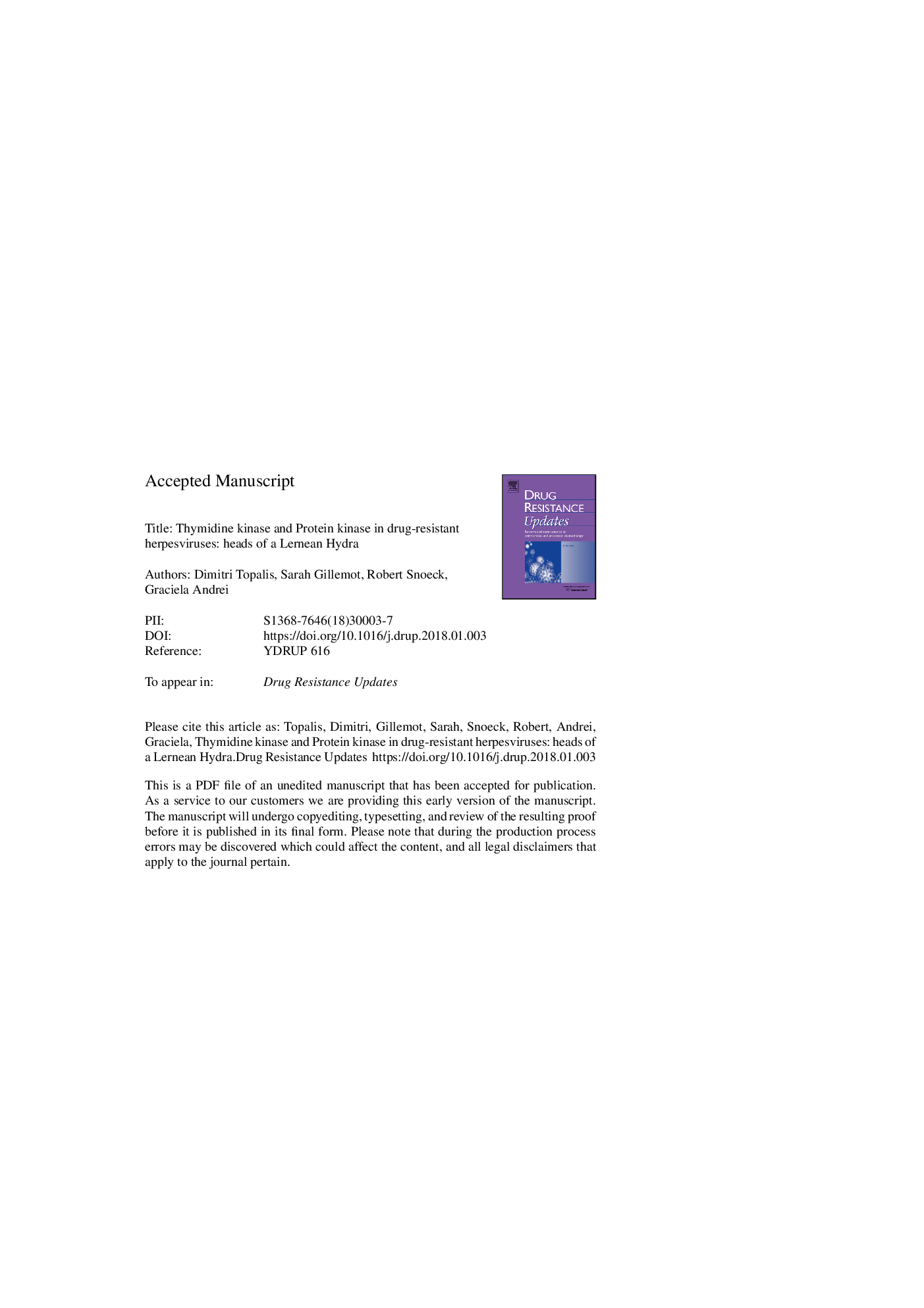| Article ID | Journal | Published Year | Pages | File Type |
|---|---|---|---|---|
| 8436458 | Drug Resistance Updates | 2018 | 56 Pages |
Abstract
Herpesviruses thymidine kinase (TK) and protein kinase (PK) allow the activation of nucleoside analogues used in anti-herpesvirus treatments. Mutations emerging in these two genes often lead to emergence of drug-resistant strains responsible for life-threatening diseases in immunocompromised populations. In this review, we analyze the binding of different nucleoside analogues to the TK active site of the three α-herpesviruses [Herpes Simplex Virus 1 and 2 (HSV-1 and HSV-2) and Varicella-Zoster Virus (VZV)] and present the impact of known mutations on the structure of the viral TKs. Furthermore, models of β-herpesviruses [Human cytomegalovirus (HCMV) and human herpesvirus-6 (HHV-6)] PKs allow to link amino acid changes with resistance to ganciclovir and/or maribavir, an investigational chemotherapeutic used in patients with multidrug-resistant HCMV. Finally, we set the basis for the understanding of drug-resistance in γ-herpesviruses [Epstein-Barr virus (EBV) and Kaposi's sarcoma associated herpesvirus (KSHV)] TK and PK through the use of animal surrogate models.
Related Topics
Life Sciences
Biochemistry, Genetics and Molecular Biology
Cancer Research
Authors
Dimitri Topalis, Sarah Gillemot, Robert Snoeck, Graciela Andrei,
